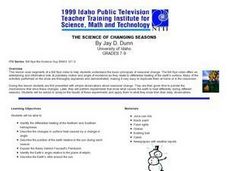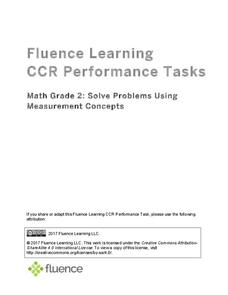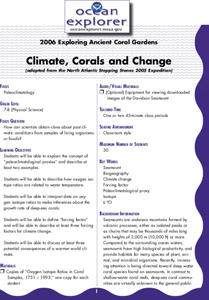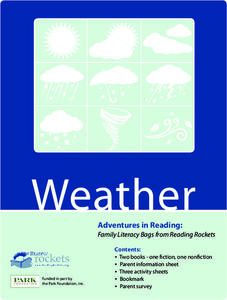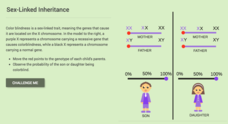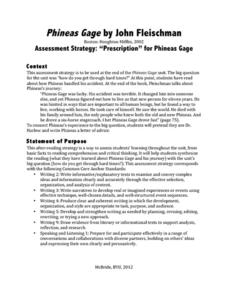Curated OER
The Science of Changing Seasons
Learners explore basic principles of seasonal change, ponder the mechanisms that drive these changes, and perform experiments that show what causes the earth to heat differently during different seasons.
Curated OER
Science: Floating and Sinking Objects
Second graders discuss why some objects float while others sink. They examine various objects and predict whether or not they will sink or float. Students discover the properties needed for objects to float.
Curated OER
What Is the Nature of Science?
Students distinguish between scientific and everyday meanings of key words-theory, hypothesis, law, fact-and use in context. They recognize the variables that affect observation, data collection, and interpretation. They discover the...
Curated OER
Science: Animal Body Parts
Students examine animal vocabulary words and identify which animals have those characteristics. In small groups, they play an animal card game involving more vocabulary words. Students continue to drill on terms by completing...
Curated OER
Physical Science: Magnetism and Electricity
Students use a variety of objects to test for ability to "stick" to a magnet. They perform an experiment to see that electricity in circuits can produce light, heat, sound, and magnetic effects. They discover magnets attract and repel...
Curated OER
Applied Science - Technology (KA) Pre Lab
Students explore tools. In this tool lesson, students see how tools and machines were invented to help people work easier. They see different types of simple machines such as wheel and axle, lever, and wedge.
Curated OER
Applied Science - Built Environment (2) Pre Lab
Second graders review how our society affects nature. In this energy lesson, 2nd graders discuss the different ways that energy is collected. They review renewable and nonrenewable energy sources.
Fluence Learning
Solve Problems Using Measurement Concepts
Young mathematicians demonstrate what they know about measurement with a four-task assessment that focuses on estimation, length, and inches.
Fluence Learning
Writing an Argument: The NIEHS
Should the work of the National Institute of Environmental Health Sciences be funded by the government? Middle schoolers weigh in on the status of federal funding for programs that protect the environment with three text passages and...
NOAA
Climate, Corals and Change
Global warming isn't just an issue on land; deep ocean waters are also showing troubling signs. Young scientists learn more about deep water corals and the many recent discoveries researchers have made. Then they examine data related to...
Curated OER
Water and Ice
Students participate in various air experiments to understand that air is all around us. In this states of matter lesson, students focus on the role of air in the water cycle. Students understand that air is densest near the ground....
NOAA
What's the Difference?
Due to the isolation of seamounts, their biodiversity offers a great deal of information on the development of biological and physical processes. Pupils use simple cluster analysis to rate the similarity and differences in biological...
NOAA
The Oceanographic Yo-yo
How does chemistry help deep-sea explorers? Part four of a five-part series of lessons from aboard the Okeanos Explorer introduces middle school scientists to technologies used in ocean exploration. Groups work together to analyze data...
Education Development Center
Algebraic Habits of Mind
Math really is just one big puzzle waiting to be solved. Show learners that math can be intriguing and provide them with visually engaging problems and puzzles. The focus is on solving simple equations and looking at expressions.
ReadWriteThink
Webcams in the Classroom: Animal Inquiry and Observation
Boost observational skills with an inquiry-based lesson that takes scholars on a virtual field trip. With help from webcams, learners observe animals in a zoo or aquarium. Observations go into a journal and a discussion is held to review...
K12 Reader
Step by Step Instructions
Here's a worksheet that not only provides readers with information about crafting step-by-step directions for a science project, but also serves as a reading comprehension exercise.
Cornell Lab of Ornithology
Investigating Evidence
Explore the scientific process through nature. Scholars become scientists as they develop a question, design an experiment, collect data, and analyze their results. A two-week lesson guides your classes through the process and provides...
Google
Adventure on the High Seas
Ahoy there! A fun computer science lesson challenges pupils to write a program that creates an ocean wave. They then develop stories to accompany their projects. All of this takes place within the Scratch coding program.
PBS
Reading Adventure Pack: Weather
A reading adventure pack, featuring a fiction and nonfiction book focuses on the weather. Scholars read Cloudy with a Chance of Meatballs by Judi Barrett and Seymour Simon and then complete three creative activities. Participants craft...
NOAA
A Matter of Density
Larvae transportation on the New England seamounts is based on the density of the water. Scholars calculate density and graph salinity versus temperature to better understand the distribution of organisms in a water column. Discussions...
K12 Reader
Waves & Currents
Challenge your young readers with a passage about physical science. After reading about sound waves and electric currents, kids answer five reading comprehension questions about what they have read.
August House
The Archer and the Sun
Reinforce reading comprehension with a instructional activity about The Archer and the Sun, a Chinese folktale. Kids learn some background information about Chinese culture before reading the story, and answer literacy questions as they...
CK-12 Foundation
Sex-Linked Inheritance
Sex-linked traits indicate a gene's location on a specific chromosome. Scholars learn about sex-linked traits and the specifics behind color blindness in the videos. Then they complete the online interactive to apply their knowledge...
Curated OER
Phineas Gage: Assessment Strategy
Close up your study of Phineas Gage: A Gruesome but True Story About Brain Science with a letter-writing assignment. Pupils prepare by journaling and sharing with a partner. They then compose letters that focus on a big idea from the...
Other popular searches
- Science Focus 8
- Science Focus 4
- Science Focus 7.
- Science Focus 3
- Science Focus 8 Crosswords
- Science Focus Living Things
- Science Focus 9
- Science Focus 8 Mixtures
- Science Focus 7
- Science Focus Review Notes
- Science Focus 8 Worksheets
- Science Focus 10


